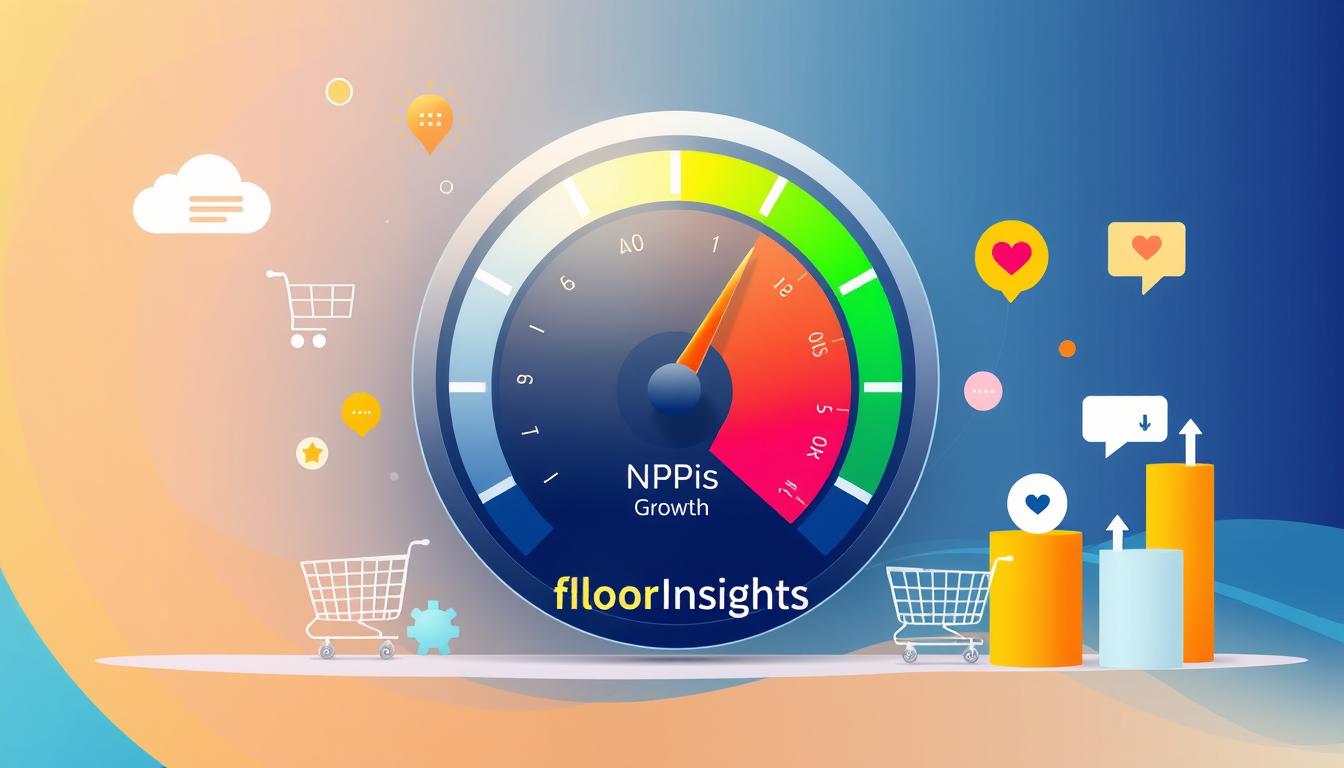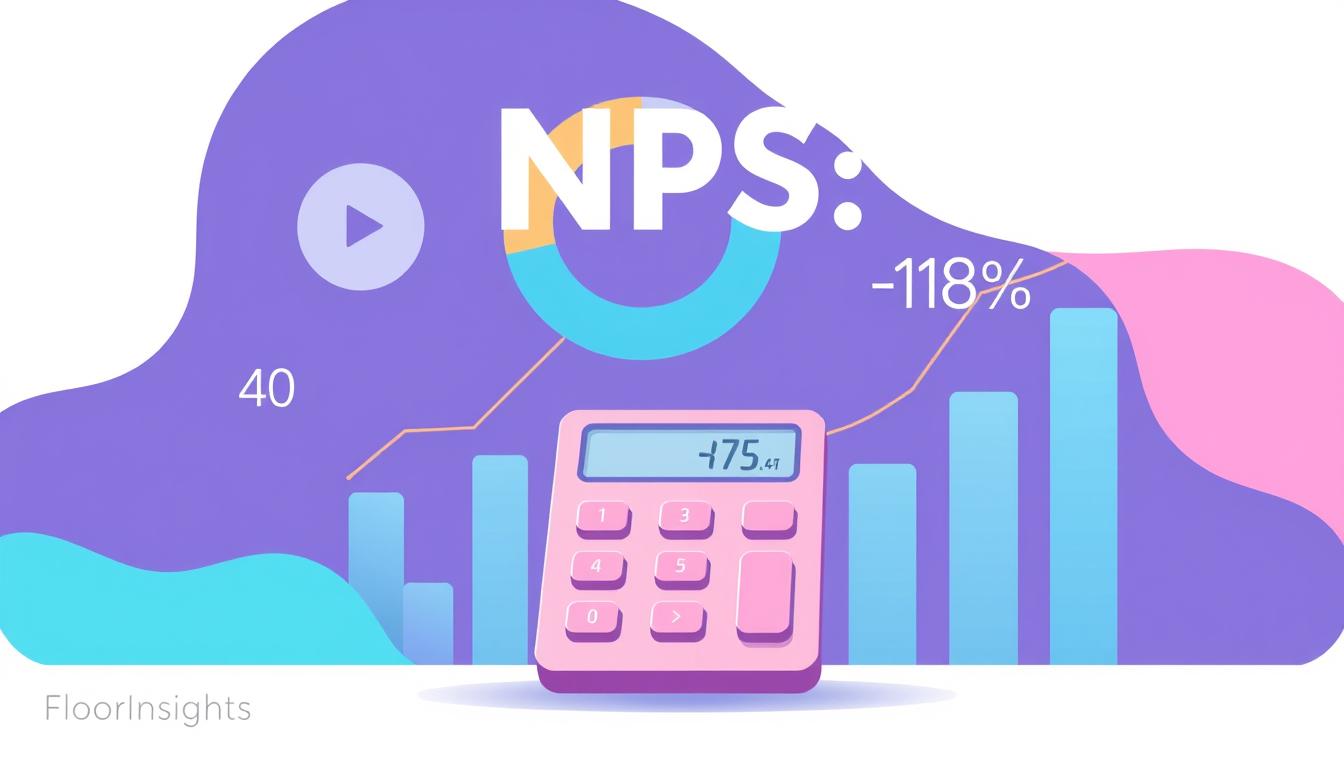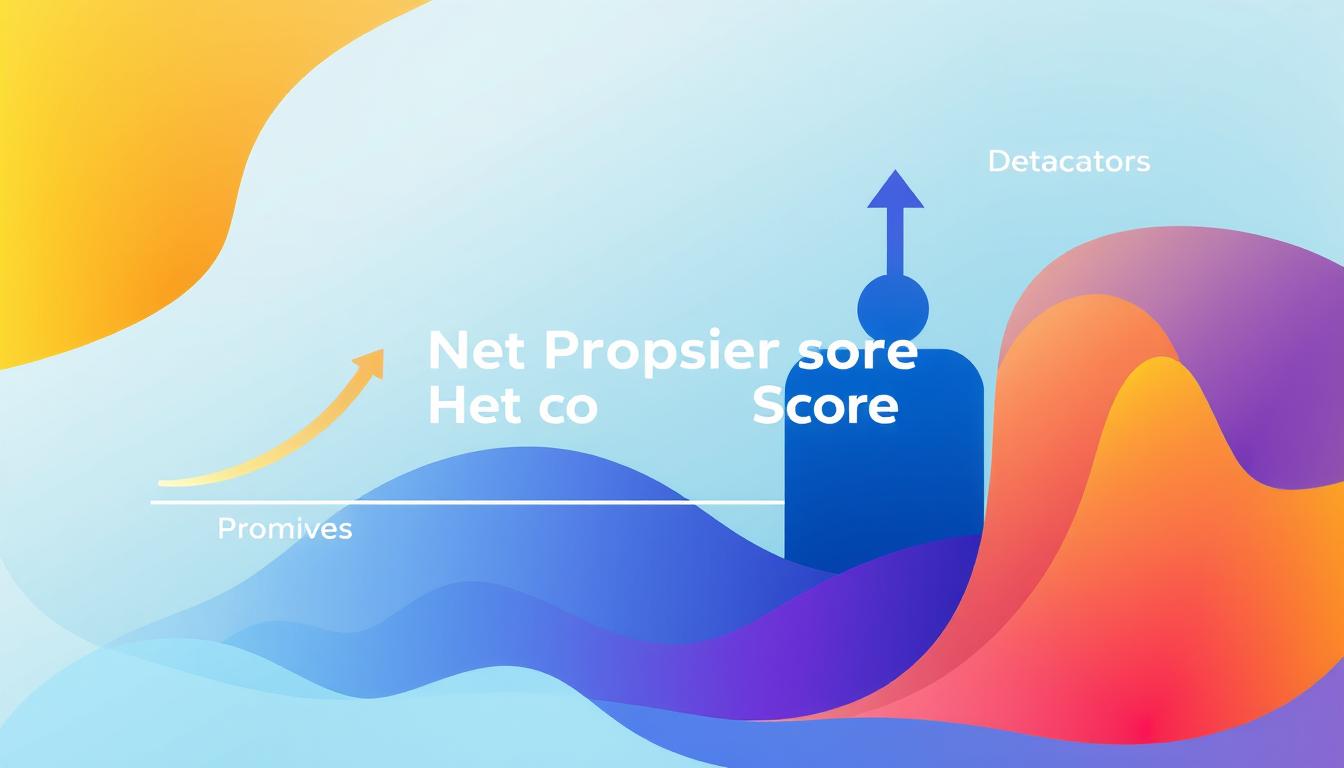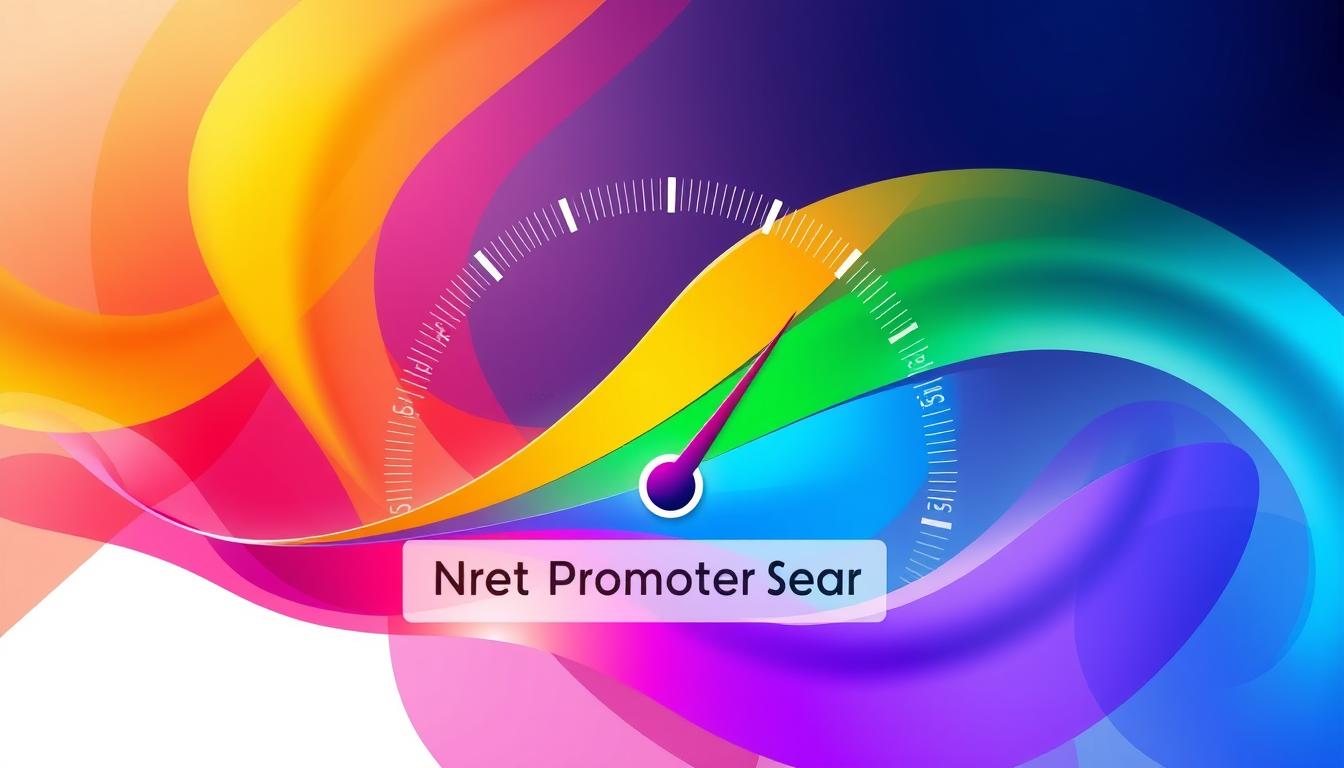In today’s highly competitive ecommerce landscape in India, delivering an exceptional customer experience is paramount to driving growth, fostering loyalty, and strengthening brand reputation. As ecommerce businesses strive to stand out in a crowded market, the Net Promoter Score (NPS) has emerged as a powerful metric that can unlock valuable insights and guide strategic decision-making.
In this comprehensive guide, we’ll explore how ecommerce companies in India can effectively harness the power of NPS to boost customer loyalty, improve satisfaction, and elevate the overall customer experience. By understanding the NPS methodology, optimizing survey strategies, and leveraging customer feedback, ecommerce businesses can unlock new opportunities to enhance their brand’s reputation and drive sustainable growth.
Key Takeaways
- Understand the significance of Net Promoter Score (NPS) in the ecommerce industry
- Learn how to effectively calculate and interpret NPS ratings to drive customer loyalty
- Discover strategies to enhance customer satisfaction and identify pain points
- Explore ways to elevate the customer experience and optimize NPS surveys
- Leverage customer feedback to boost retention, referrals, and brand reputation
Unleashing the Power of Net Promoter Score
Net Promoter Score (NPS) is a revolutionary metric that has transformed the way ecommerce companies measure customer loyalty and engagement. This simple yet powerful tool offers a wealth of insights that can propel your business towards greater success.
At its core, NPS is a customer satisfaction survey that asks a single question: “How likely are you to recommend our company/product/service to a friend or colleague?” Customers respond on a scale of 0 to 10, with 0 being “not at all likely” and 10 being “extremely likely.” Based on their responses, customers are categorized as Promoters (9-10), Passives (7-8), or Detractors (0-6).
The true power of NPS lies in its ability to provide a clear, data-driven understanding of your customer’s sentiment. By tracking your NPS over time, you can gain valuable insights into the health of your brand, identify areas for improvement, and develop targeted strategies to enhance customer loyalty and engagement.
| NPS Category | Score Range | Customer Behavior |
|---|---|---|
| Promoters | 9-10 | Loyal, enthusiastic customers who are likely to refer your brand to others |
| Passives | 7-8 | Satisfied but unenthusiastic customers who are vulnerable to competitors |
| Detractors | 0-6 | Unhappy customers who may actively discourage others from doing business with you |
By understanding the dynamics of your Net Promoter Score, you can unlock a wealth of opportunities to drive customer loyalty, enhance brand reputation, and ultimately, boost your ecommerce business’s long-term success.
“Net Promoter Score is the one number you need to grow.” – Fred Reichheld, Bain & Company
Understanding the NPS Methodology
The Net Promoter Score (NPS) is a widely-adopted metric that helps ecommerce companies gauge their customer loyalty and satisfaction. To fully leverage this powerful tool, it’s essential to understand the underlying methodology and how to interpret the results effectively.
Calculating the NPS Score
The NPS calculation is based on a simple survey question: “How likely are you to recommend our company/product to a friend or colleague?” Customers respond on a scale of 0 to 10, with 0 being “Not at all likely” and 10 being “Extremely likely.” The NPS score is then calculated by subtracting the percentage of “Detractors” (those who score 0-6) from the percentage of “Promoters” (those who score 9-10). The resulting score can range from -100 to 100, with higher scores indicating stronger customer loyalty and advocacy.
Interpreting NPS Ratings
The interpretation of NPS ratings is straightforward:
- Promoters (9-10): These are your loyal, enthusiastic customers who are likely to generate positive word-of-mouth and continue doing business with you.
- Passives (7-8): These customers are satisfied but not necessarily loyal, and may be susceptible to offers from competitors.
- Detractors (0-6): These unhappy customers are at risk of churn and may actively discourage others from doing business with you.
By understanding the NPS methodology and the implications of different rating categories, ecommerce companies can gain valuable insights into their customer base and identify areas for improvement to enhance customer loyalty and satisfaction.
| NPS Rating | Customer Segment | Characteristics |
|---|---|---|
| 9-10 | Promoters | Loyal, enthusiastic customers who are likely to generate positive word-of-mouth and continue doing business with the company. |
| 7-8 | Passives | Satisfied but not necessarily loyal customers, who may be susceptible to offers from competitors. |
| 0-6 | Detractors | Unhappy customers who are at risk of churn and may actively discourage others from doing business with the company. |
Enhancing Customer Loyalty
At the heart of any successful ecommerce business lies a loyal customer base. By focusing on improving customer loyalty, we can cultivate a devoted group of consumers who not only continue to shop with us but also actively promote our brand through word-of-mouth and referrals. Net Promoter Score (NPS) can be a powerful tool in this endeavor, helping us understand and address the factors that drive customer retention and repeat business.
One of the key benefits of leveraging NPS is its ability to identify our brand’s strongest advocates – the “promoters” who are enthusiastic about our products or services. By understanding what motivates these loyal customers, we can replicate those positive experiences and interactions to attract more like-minded individuals. This, in turn, can lead to a virtuous cycle of customer loyalty, increased referrals, and sustained business growth.
Furthermore, NPS can also help us pinpoint areas for improvement by uncovering the “detractors” – those customers who are dissatisfied and may even actively discourage others from doing business with us. By addressing their concerns and pain points, we can work to convert these detractors into neutral or even promoter-level customers, enhancing our overall customer retention and repeat business.
“Loyal customers, they don’t just come back, they don’t simply recommend you, they insist that their friends do business with you.” – Chip Bell
Ultimately, by leveraging NPS to drive customer loyalty, we can build a strong, sustainable ecommerce business that not only retains its existing customer base but also attracts new customers through the power of referrals. This holistic approach to customer relationships can be the cornerstone of long-term growth and success.
Boosting Customer Satisfaction
At the heart of any successful ecommerce business lies a deep understanding of customer satisfaction. By leveraging the insights gleaned from Net Promoter Score (NPS) data, companies can identify key pain points and implement strategic improvements to enhance the overall customer experience.
Identifying Pain Points
The NPS survey provides valuable feedback from customers, shedding light on the areas that require attention. By analyzing NPS scores and customer comments, ecommerce businesses can pinpoint the specific touchpoints that are causing friction or dissatisfaction. This could include issues with the website’s user experience, shipping and delivery processes, product quality, or customer support.
Implementing Improvements
Armed with a clear understanding of customer pain points, ecommerce companies can then develop and execute a plan to address these concerns. This may involve making updates to the website’s design, optimizing the checkout process, enhancing product quality control, or improving response times for customer inquiries. By continuously soliciting feedback and implementing meaningful changes, businesses can steadily improve customer satisfaction and loyalty.
| Customer Satisfaction Metrics | Baseline | Target |
|---|---|---|
| Net Promoter Score (NPS) | 45 | 55 |
| Customer Satisfaction (CSAT) Score | 80% | 90% |
| Customer Effort Score (CES) | 3.8 | 4.2 |
By consistently monitoring and improving these key customer satisfaction metrics, ecommerce companies can foster a loyal customer base and drive sustainable business growth.
“Investing in customer satisfaction is not just a noble goal, it’s a strategic imperative for any ecommerce business that wants to thrive in today’s competitive landscape.”
Elevating the Customer Experience
At the heart of a successful ecommerce strategy lies a deep understanding of the customer experience. By leveraging the insights gleaned from Net Promoter Score (NPS), ecommerce companies can unlock a treasure trove of valuable data to enhance the overall customer journey.
Delving into NPS data allows ecommerce businesses to gain a granular understanding of their customers’ preferences, pain points, and the factors that drive their loyalty. This knowledge empowers companies to tailor the customer experience, delivering personalized interactions that resonate with their target audience.
One of the key advantages of harnessing NPS is the ability to identify areas for improvement within the ecommerce platform. By pinpointing the specific touchpoints that may be causing friction or frustration, businesses can prioritize and implement enhancements that address these pain points, elevating the customer experience and boosting user satisfaction.
Moreover, the personalization capabilities enabled by NPS data unlock new opportunities for ecommerce companies to create highly targeted and engaging experiences. From personalized product recommendations to seamless checkout processes, leveraging customer insights can transform the ecommerce landscape, fostering deeper connections and driving long-term customer loyalty.
“The customer experience is the next competitive battleground.” – Jerry Gregoire, Former CIO, Dell Computers
By continuously monitoring and refining the customer experience based on NPS feedback, ecommerce businesses can stay ahead of the curve, anticipating evolving customer needs and delivering exceptional personalization that sets them apart in the dynamic digital marketplace.

| Key Benefits of Leveraging NPS for Ecommerce | Description |
|---|---|
| Enhanced Customer Understanding | Gain deeper insights into customer preferences, pain points, and loyalty drivers. |
| Personalized Experiences | Tailor the customer journey and interactions based on individual customer needs. |
| Improved Customer Satisfaction | Address identified pain points and enhance overall customer satisfaction. |
| Increased Retention and Referrals | Foster deeper customer loyalty, leading to higher retention and referrals. |
Optimizing NPS Surveys
In the quest to gather meaningful feedback and insights, ecommerce companies must master the art of effective NPS (Net Promoter Score) survey strategies. By carefully optimizing the timing, frequency, design, and distribution of these surveys, businesses can unlock a wealth of customer data to drive continuous improvement.
Timing and Frequency
The timing and frequency of NPS surveys can significantly impact the quality and quantity of responses. Striking the right balance is crucial. We recommend conducting surveys at key touchpoints in the customer journey, such as after a purchase, product delivery, or support interaction. This ensures the feedback is timely and relevant. Additionally, consider surveying customers on a quarterly or bi-annual basis to track trends and measure the impact of your efforts.
Survey Design and Distribution
Crafting an engaging and intuitive NPS survey is essential for maximizing participation and data collection. Utilize clear and concise language, focusing on a single question that captures the customer’s likelihood to recommend your brand. Complement the NPS question with open-ended feedback fields to uncover valuable insights. Distribute surveys through multiple channels, including email, in-app prompts, and website pop-ups, to reach a diverse range of customers.
By optimizing the NPS survey process, ecommerce companies can unlock a treasure trove of customer feedback and data collection opportunities. This, in turn, empowers them to make data-driven decisions and continuously optimize the customer experience.
Leveraging NPS surveys effectively can be a game-changer for ecommerce businesses, transforming customer insights into actionable strategies for growth and success.
Increasing Retention and Referrals
By leveraging the power of a robust Net Promoter Score (NPS) program, ecommerce businesses can not only enhance customer retention but also tap into the power of referrals and brand advocacy. This dual-pronged approach can drive sustainable growth and attract new customers through the power of word-of-mouth marketing.
Maintaining a high customer retention rate is crucial for ecommerce success, as it costs significantly less to retain existing customers than to acquire new ones. By addressing customer pain points, improving the overall experience, and fostering brand loyalty, businesses can keep their valued customers coming back time and again.
But the benefits of a well-executed NPS strategy go beyond just retaining customers. By encouraging and incentivizing satisfied customers to share their positive experiences, ecommerce companies can harness the power of referral marketing and word-of-mouth advocacy. This organic form of marketing can be a highly effective way to acquire new customers who are more likely to trust the recommendations of their peers.
| Metric | Importance |
|---|---|
| Customer Retention Rate | Retaining existing customers is more cost-effective than acquiring new ones. A high retention rate indicates a loyal customer base and sustainable growth. |
| Referral Rate | Word-of-mouth referrals from satisfied customers can be a powerful driver of new customer acquisition. A high referral rate reflects the strength of a brand’s advocacy network. |
By carefully monitoring and optimizing these key metrics, ecommerce businesses can unlock the full potential of their NPS program and create a virtuous cycle of customer retention, referrals, and brand advocacy.
“Satisfied customers not only return to your business, but they also become your most effective marketing channel through referrals and word-of-mouth.”
Ultimately, the successful integration of NPS into your ecommerce strategy can be a game-changer, driving long-term growth and profitability by fostering a loyal customer base and a thriving referral ecosystem.
Net Promoter Score and Brand Reputation
As ecommerce businesses strive to establish a strong brand reputation and foster customer trust, the Net Promoter Score (NPS) can serve as a valuable metric. This powerful indicator not only reflects the level of customer satisfaction but also provides insights into the perception of a company’s brand image in the eyes of its customers.
By closely monitoring their NPS, ecommerce businesses can gain a deeper understanding of how their customers view their brand. A high NPS, indicating a high level of customer loyalty and advocacy, can be a powerful asset in building a positive brand reputation and enhancing customer trust. Conversely, a low NPS may signal areas for improvement, allowing ecommerce companies to proactively address any brand image concerns and strengthen their relationships with customers.
Leveraging the insights provided by the Net Promoter Score, ecommerce businesses can effectively craft and refine their brand messaging, improve customer experiences, and demonstrate their commitment to customer-centricity. By embracing the power of NPS, these companies can establish themselves as trusted and customer-centric players in the ecommerce landscape, ultimately driving long-term brand loyalty and business growth.
“Delivering a consistently positive customer experience is crucial for building a strong brand reputation and earning the trust of your customers.”
Leveraging Customer Feedback
In the dynamic world of ecommerce, customer feedback is the bedrock upon which data-driven decisions are built. By effectively leveraging the insights gathered through customer feedback and NPS surveys, ecommerce companies can close the feedback loop and implement a continuous improvement cycle, ultimately leading to enhanced customer experiences and stronger business performance.
Closing the Feedback Loop
The key to unlocking the power of customer feedback lies in the ability to rapidly respond to it. Ecommerce businesses must establish a robust system to close the feedback loop, ensuring that customer concerns, suggestions, and insights are swiftly addressed. This not only demonstrates the company’s commitment to its customers but also fosters a sense of trust and loyalty.
Continuous Improvement Cycle
- Leveraging the customer feedback collected through NPS surveys, ecommerce companies can identify areas for improvement and implement targeted changes to enhance the overall customer experience.
- By adopting a continuous improvement mindset, businesses can continuously refine their offerings, optimize their processes, and stay ahead of evolving customer expectations, ensuring long-term ecommerce success.
- This cyclical approach, where customer feedback drives data-driven decisions and iterative improvements, is key to maintaining a competitive edge and fostering a loyal customer base.
Embracing the power of customer feedback and implementing a robust continuous improvement cycle is a surefire way for ecommerce companies to elevate their customer experience, boost loyalty, and drive sustainable growth in today’s dynamic ecommerce landscape.
Conclusion
In conclusion, the Net Promoter Score is a transformative metric that can empower ecommerce businesses in India to foster unparalleled customer loyalty, elevate satisfaction, and drive sustainable growth in a highly competitive market. By mastering the NPS methodology, optimizing survey strategies, and leveraging customer feedback, ecommerce companies can unlock new avenues to enhance their customer experience and strengthen their brand reputation.
The insights gleaned from the Net Promoter Score enable ecommerce leaders to identify pain points, implement targeted improvements, and deliver exceptional service that resonates with their target audience. By embracing this powerful tool, ecommerce businesses in India can stay ahead of the curve, build lasting relationships with their customers, and emerge as industry trailblazers in the digital commerce landscape.
As we navigate the ever-evolving ecommerce landscape, the Net Promoter Score remains a steadfast compass, guiding businesses to navigate the complexities of customer loyalty and satisfaction. By harnessing its transformative power, ecommerce companies in India can unlock new realms of growth, innovation, and unparalleled success in the years to come.
FAQ
What is Net Promoter Score (NPS)?
Net Promoter Score (NPS) is a widely-used metric that measures customer loyalty and satisfaction. It is based on the question “How likely are you to recommend our company/product/service to a friend or colleague?” and categorizes customers into Promoters, Passives, and Detractors.
How is the NPS score calculated?
The NPS score is calculated by subtracting the percentage of Detractors (customers who rate 0-6) from the percentage of Promoters (customers who rate 9-10). The resulting score can range from -100 to 100, with a higher score indicating a more loyal and satisfied customer base.
How can ecommerce companies use NPS to improve customer loyalty?
Ecommerce companies can use NPS to identify their most loyal and satisfied customers (Promoters), and then implement strategies to engage and retain them, such as incentivizing referrals, offering exclusive benefits, and utilizing their positive experiences to attract new customers.
What are the key benefits of using NPS for ecommerce businesses?
The key benefits of using NPS for ecommerce businesses include improving customer satisfaction, enhancing the customer experience, increasing customer retention and repeat business, driving referrals and word-of-mouth marketing, and strengthening the company’s brand reputation.
How can ecommerce companies optimize their NPS survey strategies?
To optimize NPS survey strategies, ecommerce companies should focus on the timing and frequency of surveys, design surveys that are concise and user-friendly, distribute surveys through multiple channels, and ensure they are collecting high-quality, actionable feedback from customers.
How can ecommerce companies use NPS data to drive continuous improvement?
Ecommerce companies can use NPS data to identify customer pain points, implement targeted improvements to the customer experience, and then measure the impact of those changes through subsequent NPS surveys. This continuous feedback loop allows for data-driven decision-making and ongoing optimization.
How does NPS impact a company’s brand reputation and customer trust?
Related Posts
- The Relationship Between NPS and Business Units in Enterprises – NPS for Enterprise Businesses
- Using NPS to Maintain Quality Control in Franchise Operations – NPS for Franchise Businesses
- How to Address Ethical Concerns in NPS Survey Design – NPS Ethics and Data Privacy
- NPS in Influencer Marketing: Engaging the Right Audience






